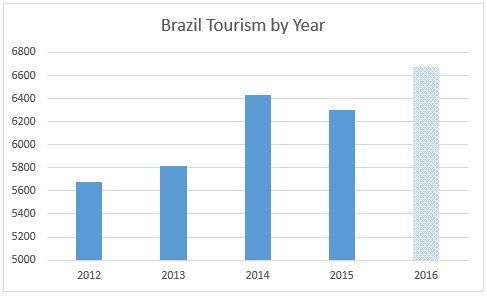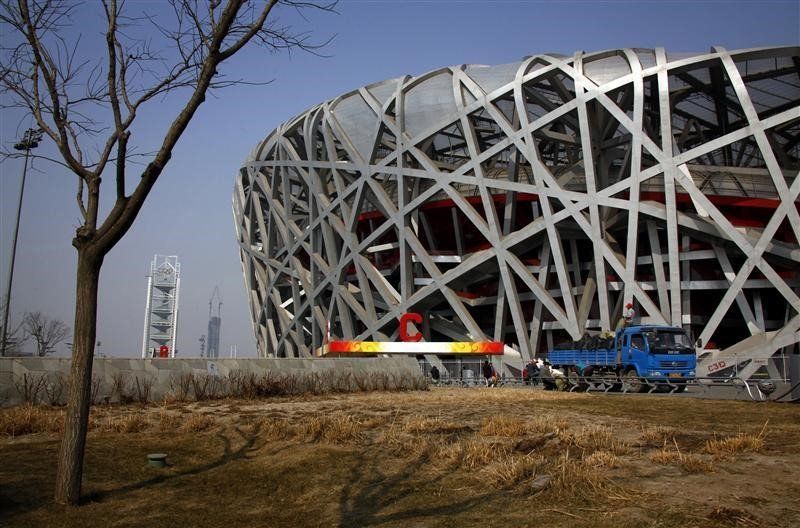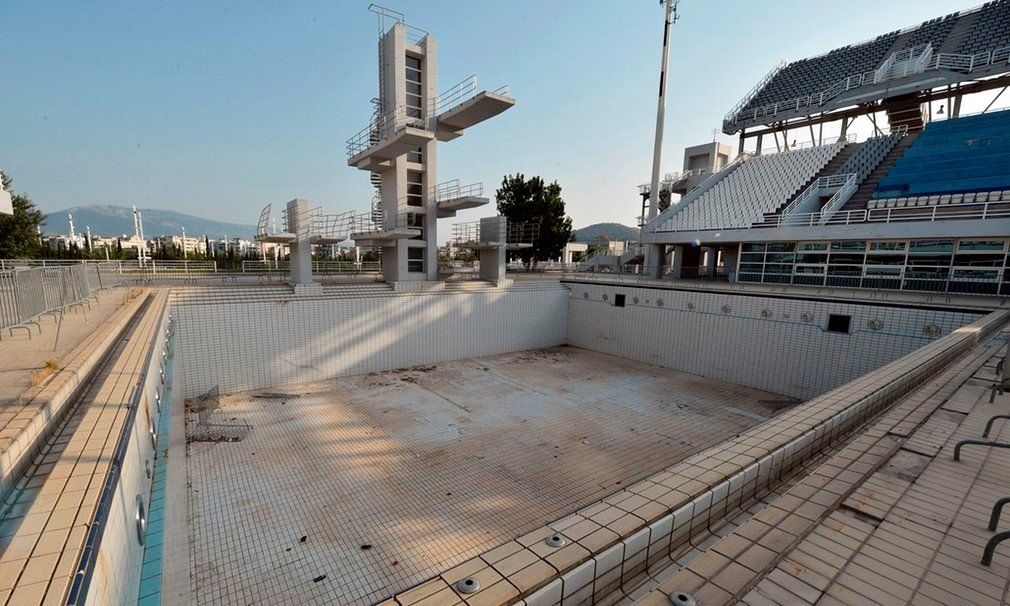Brazil’s Post-Olympic Legacy
Straying as far away from possible probability theories about the Championship, the weather (it’s due to rain … a lot), Turn 1 and pretty much anything else to do with the race, I turned to Twitter for ideas on what to write about before this weekend’s race.
Someone suggested the Brazil’s post-Olympic legacy. So this I think could be a very short post.
Tourism Legacy
According to Brazil’s Ministry of Tourism, following the Olympics, they are expecting a 6% increase in visitors to the country over the next year, based data analysis of tourism following the Olympics in Athens. Beijing and London.
Although, as you can see from the graph above, tourist numbers actually fell after the World Cup in 2014.
If, as expected numbers of tourists rise then Rio, at least has prepared itself. Rio’s hospitality industry added 20,000 rooms for the Olympics which, according to the Brazilian Hotel Industry Association makes the total of rooms available to 50,000.
Brazil has also invested in professional qualifications for those working within the tourist industry, made improvements in visitor sign-posting and the marketing of primary tourist destinations.
Will the 6% increase in tourist numbers come to fruition? We wait with bated breath!
Economic Legacy
According to the IMF (International Monetary Fund), as of 2016, Brazil is the world’s 9th largest economy based on its nominal GDP (Gross Domestic Product - the monetary value of all the finished goods and services produced within a country's borders in a specific time period)
However, like a lot of countries around the world, they are still in recession and austerity measures, rising unemployment and tight credit conditions will, in all likelihood, keep the economy in a profound recession for the rest of 2016 – despite an increase in tourist revenue from the games.
Interestingly, as I was trying to find things about the Olympic legacy, I found this short snippet from Money Week Magazine:
“The Brazilian government has frozen the bank accounts of Rio de Janeiro, demanding that the state reimburse the federal government %53m in unpaid debts. Rio’s finances have been hit by the country’s severe recession and falling oil prices, compounded by the ongoing corruption scandal surrounding the Brazilian oil firm Petrobras, which is headquartered in the city. Rio de Janeiro state declared a financial emergency before the Olympics earlier this year as it struggled to meet the event’s security and transport costs. The central government bailed out Rio with only weeks to go before the start of the games, but with demands for repayment now rolling in, state governor, Luiz Fernando Pezao has been forced to announce austerity measures that include deep cuts in the pensions and salaries of public-sector workers.”
FocusEconomics Consensus Forecast panellists expect that the economy will drop 3.2% in 2016, which is unchanged from last month's projection. Next year, the panel expects GDP growth to rebound to a 1.0% expansion.
So will the Olympics improve the economy?
Olympic Venue Legacy
The 2 pictures above are quite sad. After all the glitz and glamour (not to mention the expense) of putting on the Olympic Games, the reality is that stadiums are just left to rot.
From what I can gather, the aquatics stadium and beach volleyball arenas were temporary structures and will be, or have been, torn down following the games. According to the official Rio 2016 website the aquatic stadium will be replaced with 2 smaller aquatic venues, which sort of begs the question, why? If the city, and country are lacking funds why waste money tearing down and replacing? Why not just utilise what they have?
Again, according to the Rio 2016 website, the Future Arena and Carioca Arena 3, both within the main Olympic Park will be transformed into educational facilities; the Future Arena will be dismantled and reassembled as four state schools, while Carioca Arena 3 will become a public sports training centre. That will be a real legacy, if it indeed happens, we shall have to watch that space.
Maracanãzinho, one of the temples of Brazilian volleyball and basketball, was fully renovated in time for Rio 2016. Apparently, it’s a sure fire bet to host major international sporting events in the future. Should we hold our breath?
The Olympic Boulevard was very controversial as it was built on land steeped in history. However, the rumour is that it will become an important public space in the future.
However, the Athlete’s Village is being turned into luxury apartment complexes, which will be totally out of the price range of many local people and there is a shortage of affordable housing.
Surprisingly, that is exactly what has happened to the Athlete’s Village from London 2012. Apartments are being rented out at approximately £400 per week! So much for leaving a legacy for local people both in Brazil and London.
Sustainability & Environmental Legacy
The most interesting bit of information about the Olympic legacy on the Rio 2016 website is this:
“Rio 2016 has aimed to be the most sustainable Games in history. By using existing and temporary venues, organisers have avoided creating 'white elephants', while the use of 'nomadic architecture' will allow the Future Arena to be taken down and reconstructed as four public schools, while the Olympic Aquatics Stadium will also be taken down and reused elsewhere. The construction of the Olympic Golf Course resulted in the recovery of 44 hectares of natural landscape and increased local biodiversity. The Rio 2016 medals were made with gold that was mined without the use of mercury, while the silver and bronze medals consist of 30 per cent recycled material. Rio 2016 also formed a partnership with the UN's 'Green Passport' scheme to promote sustainable tourism around the Games.”
However, the more articles I have read about the environmental impact of the Rio games, one thing in particular seems to be reiterated and that is that Rio won the bid to host the games with grand pledges on environmental sustainability – and failed to deliver.
There were well-publicised efforts to limit the damage to the environment: “Athletes got their protein hit from fish certified as sustainable and meat guaranteed not to have been produced on deforested land. Waste was kept to a minimum and celebrity chefs figure-headed a scheme to turn leftovers into meals for the homeless.”
But it seems there were more broken promises that kept ones.
A pledge in the original bid stated they would plant 24million trees, by the start of the games a mere 8 million had been planted.
Then there was the issue highlighted about the quality of the water that the sailing events were due to take place in, reports of athletes falling ill after entering the water which was highly contaminated with waste and raw sewage. Another waste related problem was that of a lagoon near the Athletes Village in which, it was reported that “plans to dredge the bottom of the lagoon were suspended for a period after Brazil's Federal Prosecutor identified irregularities in the tendering process and other procedural problems, such as the lack of an environmental impact study. Then, in August 2015, about a ton of dead fish had to be removed from the Lagoon. The fish reportedly died after strong winds disturbed decade’s worth of pollutants that released their toxins into the main body of water.”
I could go on.
So, I will finish with this one thought - the more I read it seems that the real legacy, unfortunately, is that Rio promised so much in so many areas, but missed most of the targets.
I guess I was wrong about this being a short post!
This article was first published on 'Girl in the Pitlane', 13 November 2016



